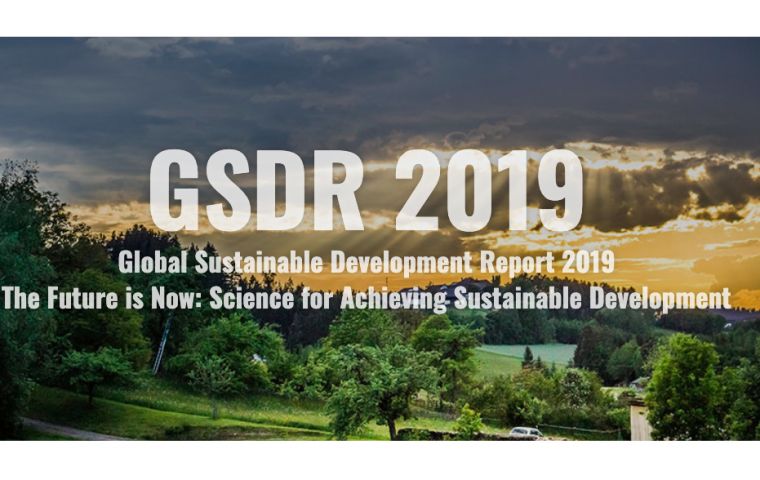MercoPress. South Atlantic News Agency
UN: Scientists call for urgent action to avoid reversing the development gains
 According to United Nations, new relationship between people and nature is needed as climate change and biodiversity loss threaten progress
According to United Nations, new relationship between people and nature is needed as climate change and biodiversity loss threaten progress New York, 11 September — Achieving human well-being and eradicating poverty for all of the Earth’s people—expected to number eight and a half billion by 2030—is still possible, but only if there is a fundamental—and urgent—change in the relationship between people and nature, and a significant reduction in social and gender inequalities between and inside countries, according to a new United Nations report by an independent group of scientists to be launched at the 2019 SDG Summit, but made available today.
The Report, requested by all countries to evaluate progress on the 2030 Sustainable Development Agenda, is the first of its kind since the landmark Sustainable Development Goals (SDGs) were adopted four years ago. Entitled “The Future is Now: Science for Achieving Sustainable Development,” the report finds that the current development model is not sustainable, and the progress made in the last two decades is in danger of being reversed through worsening social inequalities and potentially irreversible declines in the natural environment that sustains us. The scientists concluded that a far more optimistic future is still attainable, but only by drastically changing development policies, incentives and actions.
The report argues that understanding the interconnections between the individual SDGs and the concrete systems that define society today will be essential to devise policies that manage difficult trade-offs.
A need to transform
Creating economic growth just by increasing consumption of material goods is no longer a viable option at the global level: Projections indicate that the global use of materials is set to almost double between 2017 and 2060, from 89 Gigatons to 167 Gigatons, with correspondingly increased levels of greenhouse gas emissions, and other toxic effects such as those from mining and other pollution sources.
The present model of development has delivered prosperity to hundreds of millions. But it also has led to continuing poverty and other deprivations; unprecedented levels of inequality that undermine innovation, social cohesion and sustainable economic growth; and it has brought the world close to tipping points with the global climate system and biodiversity loss. To change course, the scientists say the world must transform a number of key areas of human activities, including food, energy, consumption and production, and cities.
A call to action: 20 interventions that will matter
The report’s Call to Action identifies 20 points where interventions can create transformative and accelerated progress towards multiple goals and targets in the coming decade. These targeted actions are based on the recent scientific literature analysing the deeper systemic interconnections that identify synergies and trade-offs between individual goals and targets.
Decisions based on science
Science must play a major role in advancing sustainable development. Universities, policymakers and research funders must increase support to research guided by the 2030 Agenda. Simultaneously, researchers in sustainability science and other disciplines, must work together to solve development problems and strengthen the science-policy-society interface, providing society and policy-makers information they can use to solve development problems.
The report makes the case for shifting current research priorities and supporting innovative approaches to sustainability science, emphasizing cross-disciplinary partnerships, and committing support and resources to scientific institutions, particularly in the global South. Development aid budgets should prioritize boosting scientific capacity and access in the global South. UN Member States, research consortia and libraries should work together to improve cross-border and inter-disciplinary collaborations in science for the SDGs.
The full report, “The Future is Now: Science for Achieving Sustainable Development,” can be found here: https://sustainabledevelopment.un.org/gsdr2019




Top Comments
Disclaimer & comment rulesCommenting for this story is now closed.
If you have a Facebook account, become a fan and comment on our Facebook Page!